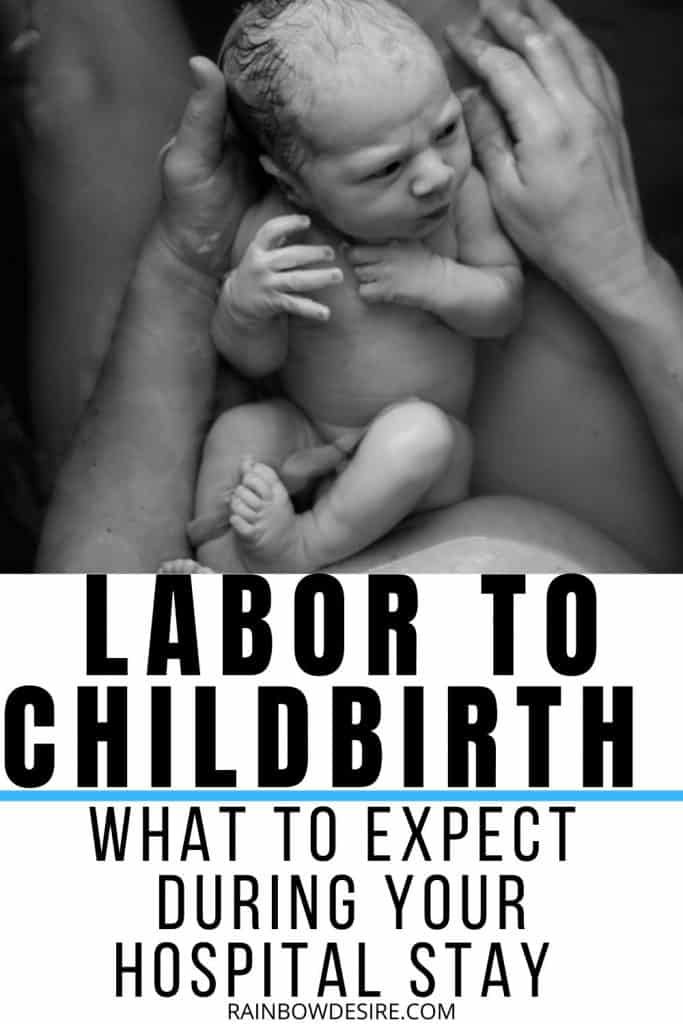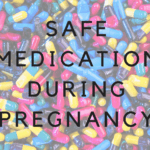Motherhood is a challenging phase of life. before giving birth women are all excited about holding a baby in their arms, looking at the joyful side of a journey. The journey from labor pains to childbirth is a life-changing event.
Counting babies kicks and most of all watching your baby moving in your third-trimester belly is one of the fondest memories of being pregnant.
Rest assured the joys of holding a baby are beautiful and you are going to have the most cherishable memories of all times.
Now you are ready to give birth and excited too, I highly recommend you should visit your hospital pre-birth and get yourself registered. This will save you a lot of time when you will be actually in labor and need immediate assistance.
Visit your hospital labor and delivery department to be well aware of the rooms and other formalities, you might have to take care of.
Hospital bag Essentials for the delivery day that you must pack by 34 weeks.
What to expect when you are in labor
This is a very common question for first-time moms when you know it’s time to bring baby home.
Having all those excitement and butterflies in your belly; one fine day your time would come with real pains and probably with a gush of water.
When you know these are not Braxton hicks (false contractions) and you could actually time your pains at equal intervals. If your contractions are exactly at 20 minutes interval, maybe less or more, you need to pack up your hospital bag.
Well, as a matter of fact, these contractions interval may take days to shrink down to maybe 5 minutes or 3 minutes. Whenever you are able to time them for like 2 to 3 hours at the same interval, you need to call your doctor, nurse or a midwife at your hospital you are planning on to deliver.
If your water breaks, you need to call right away, even you do not feel any sort of contraction or pains.
Once you are at the hospital, you need to check in with all those bands with barcodes. These bands are going to stay on your wrist until you are staying at the hospital.
What happens in the labor room?
Nurses would take care of everything when you get there. If you have more frequent contractions, they would find out and provide immediate assistance. Your doctor or midwife is going to find out how much dilated you are by that time.
If your labor pains are not very frequent and you don’t seem to be dilated more than 2 cm, you might be sent back home.
If your baby is full-term at 39 weeks, you might want to discuss the option of Pitocin, a medicine to speed up the labor pains.
You can opt for epidural. Before that, you need to eat or drink whatever you want because once you get epidural you won’t be able to drink water even.
What happens in the surgery room in case you have scheduled a cesarean or emergency C-section?
If you have a scheduled C-section due to many reasons like baby’s position, multiple fetuses, health concerns, etc., chances are you have to get it in the morning. Thus, you have to make sure you should not have eaten at least 12 hours on the day of C-section. You have to be an empty stomach.
Eat well the night before and sleep better as you are already signing up for sleep deprivation motherhood brings. 🙂
Epidural or General Anesthesia
By any chance you end up having C-section, you most likely be given epidural (spinal) If not general anesthesia.
Nurses would make sure your area for the incision is shaved.
After that, they are going to apply medicine and all the surgical procedure you can expect.
Although doctors, surgeons, anesthesia staff, nurses, every concerned person would be in the surgery room. However, if you want your partner or husband to be in the surgery room, you can surely ask nurses.
They are going to provide the medicated clothes for him so that he can be with you inside the surgery room and you both could enjoy the birth of your baby.
What to expect right after Childbirth
You might be an expert by now for what happens in pregnancy and how to deal with those nauseous mornings, but getting to know what happens in the hospital right after birth is not too far now.
Curious to know or not – here the things you must need to know what happens after birth.
1. Apgar Evaluation
This is a necessary evaluation procedure done after birth. The purpose is to see if there are any medical concerns or not. Doctors measure five signs of the baby’s condition
- Heart rate
- Breathing
- Reflexes
- Activity and muscles tone
- Skin color
Apgar evaluation score varies from 0 to 10. Babies who score 7 or more are considered healthy. Low Apgar score does not mean any necessary medical concerns.
Researchers say that in more than 98% of babies, quite often the Apgar score reaches 7 within 5 minutes of baby’s life as it is checked twice in the first 5 minutes of baby’s life after birth.
2. Vitamin K injection
Babies are born with vitamin K deficiency as it does not reach the placenta during pregnancy. Thus, doctors make sure that babies get vitamin K injection right after birth to make sure no bleeding in the brain or intestines could occur. Right after the birth baby is given vitamin K injection to help with blood to clot.
3. Antibiotic eye ointment
Your baby will be applied Erythromycin an eye antibiotic ointment to her eyes so that it does not cause an infection that could occur during delivery. Infections could occur due to sexually transmitted diseases, gonorrhea, and chlamydia.
If you are concerned, babies can see through the ointment and it is not irritating for babies.
4. Oxygen saturation testing
This procedure is done to check for lower levels of oxygen in the baby’s bloodstream that might identify any significant yet rare heart defects. This is a needleless procedure involves placing a band-aid-like sensor on the baby’s right hand and right foot.
4. Baby Foot is printed
Your baby’s foot will be printed.
5. Identification Bands on wrists and legs
Your baby will also be wearing an identification band on with your name as a mother.
6. Skin to skin
Research has shown that an hour after birth is when your baby is very awake and alert and during that time and it is highly recommended when mother and baby has to be more on skin to skin.
7. Regulating the baby’s body temperature
Baby’s lose body heat fairly quickly, thus it is highly advisable to practice more and more skin to skin to regulate baby’s body temperature after birth.
8. Latching or Breastfeeding right after birth
As soon as your baby is done with all those requirements after birth, mothers are advised to start breastfeeding their babies right away, as this will help with the flow of milk supply for moms.
Breastfeeding has numerous benefits along with it helps the uterus to come back to its original size within 6 weeks.
9. Bonding with your baby
Right after birth, It is very normal to feel overjoyed to see your little bundle of happiness. Some mothers cannot feel that way which is normal too. Do not stress about bonding if you are not in that state of mind, because most of the time it is the effect of medicines as well.
However, dads would be happy to perform skin to skin if mom is having a surgical delivery.
In my both C section deliveries, at the time my first one was born I was in labor pains for three days, tired and exhausted, yet I just was super excited about bonding with my little guy. On the other hand, while with my second delivery, which was within 19 months, it took a while for me to feel normal again I was having extreme shoulder pain and my blood pressure dropped significantly. I just could not talk. And I could not hold her for a long time.
It is not advisable to hold your baby when you are not feeling normal about yourself. Bonding can weight but you as a healthy mother is more important.
Start skin to skin the moment you start feeling better and want to connect.
Nursing, latching, and feeding after childbirth
If you are a first-time mom, and you THINK that you KNOW how to breastfeed, do not stay in this misconception.
There is a big difference between knowing something and actually doing it.
Some babies do not know how to latch. They will learn slowly and gradually.
However, some babies are great at latching. They know suckle very well.
I would highly recommend first-time moms to consult a lactation specialist. Many hospitals in the US offer lactation classes which are super helpful.
Doctors would not allow you to go home if your baby is not having enough wet and dirty diapers. This means your baby is not having enough to eat.
The lactation consultants will visit you every day during your hospital stay and are there to help. Seek help, consult if you are struggling with breastfeeding.
If you are a first-time mom, I would suggest you take a virtual breastfeeding class by Stacey, a certified Lactation Educator. She has online Breastfeeding lessons at Milkology that hundreds of moms recommend.
Some facts about breastfeeding after childbirth
Moms expect delayed milk supply as it takes time to settle in. However, babies are not going to eat too much in the beginning.
Colostrum is the thick form of milk that comes in before the milk supply. Colostrum is the most beneficial first baby food and sufficient for the early days of a baby’s life.
If you are not mentally or physically ready to take care of your baby, talk to your nurse about it. They are there to help. You can ask them to take your baby for the night and have her in the nursery room so you can sleep or rest for that night.
You can also tell them to bring the baby in for her feed or they could give formula if you have talked to your doctor about it.
Whatever you decide to feed your baby, remember FED IS THE BEST.
Read more
44 breastfeeding tips for new moms.
What happens during the hospital stay
While you stay a the hospital nurses give you a chart to record about your baby eats, wee and poo schedule.
You have to feed every 2 hours or as per demand. The more you nurse the earlier and quick would be the milk supply.
Care providers want you to time baby’s eating, pee, and poo schedule to ensure baby is performing great after birth.
Baby’s First Poop
Baby’s first poo is called Meconium which is made of mucus, amniotic fluid and everything which baby has ingested while in the womb. Meconium is a black almost tar-like consistency.
Rarely, during normal delivery, babies tend to poo during the delivery process (while passing through the birth canal) which has to be monitored closely. It should not be swallowed as it could pose high risks.
Some babies poo within the first couple of days after birth. This first poo meconium is a good sign that means your baby’s digestive system is working just fine.
Colostrum, your first milk, will help meconium to excrete out of the baby’s body. It protects against infections and also acts as a laxative.
Well during your hospital stay doctors and nurses are going to closely monitor your baby’s health after birth.
Vital Signs test
Vital signs test is a baby’s hearing screening test.
This test is done before you leave the hospital. During this hearing screening, babies are monitored to respond to any sounds by using tiny earphones.
Some babies do not pass their test on their first attempt due to fluids in ears. There are very likely to pass the next day or so. In order to keep baby calm, the examiner might have to give sweet water (don’t worry, it’s just a drop) to have baby calm during the test.
Hearing problems are not very uncommon. If newborns by any chance do not pass the test, it would be helpful to treat any hearing defects earlier.
Physical weight check
Baby’s weight is monitored right at birth and then within the first few days after birth. It is very normal for babies to reduce weight during the first few days of their life.
It is normal for a baby to lose 7 to 10 percent of birth weight in the first couple of days after birth. If your baby keeps losing weight more than 10% of birth weight then you might want to consider supplementing.
Waiting for breastmilk supply is a great way to ensure healthy nutrition for your baby, BUT, if your baby is losing weight and you are struggling with milk supply, you should discuss your concerns about it with your doctor.
They measure the baby’s weight, height, and head circumference.
They are going to check how is your baby breathing.
Number of wet and dirty
To ensure how well your baby is eating, the number of wet diapers could depict. If your baby does not wee or have a wet diaper within 24 hours then your baby needs more nutrition.
Despite, your baby is losing weight after birth within limits even then the number of wet diapers confirms your baby is eating just fine.
If there are no wet diapers for more than 24 hours then you should be concerned.
Shots / vaccinations
If your baby has got a shot/vaccination, the hospital will provide you with a card and name of the vaccination with dates and everything that you need to know for a record.
Hep B vaccination
All Babies get the hepatitis B vaccine before leaving the hospital. HBV is a series of three different shots. All three of them will be received over the course of two years i.e. three times in 24 months.
Newborn Metabolic screening
This test is done by pricking your baby’s heel to take blood samples to rule out any signs of illness or diseases. This is done to make sure the baby does not have any disabilities, organ damage, etc.
First bath
The nurse is going to give the baby a bath. Wash baby’s hair and rest she sponge bath baby without having umbilical cord wet.
Additional tests for baby
Measuring bilirubin levels
Some, but not all, newborns require a bilirubin level check – a substance in the bloodstream responsible for causing jaundice.
Baby’s blood type test
Those babies who are born to women having Rh negative or O blood type must be tested. Other babies may get tested depending on the requirements and circumstances.
Other blood tests
Other tests are done to check blood sugar, blood counts, and blood cultures as per the circumstances.
Circumcision
Circumcision is the surgical procedure of removing foreskin on a baby boy’s penis.
Most but not all, boys get their penis circumcised before hospital discharge. Choosing this procedure could be personal or religious preference and could be scheduled even after discharge from the hospital.
In case you want to get it done for your baby boy, circumcision is widely practiced all over the world with many health benefits.
Always discuss its pros and cons with your doctor before you even decide to get it done for your baby boy.
Given the risks and concerns, this needs a lot of aftercare. Watch any signs of an infection. Keep the area dry and keep it covered with cotton gauze and a substantial amount of petroleum jelly on the wee-wee area.
This does not mean to get the process done right away. If you want your boy to get this done, you may want to do it in a couple of days after birth. The earlier the better as it heals pretty quickly within just a few days.
Nurses are going to guide you with care instructions.
Read more
First-time parent’s mistakes with a baby.






